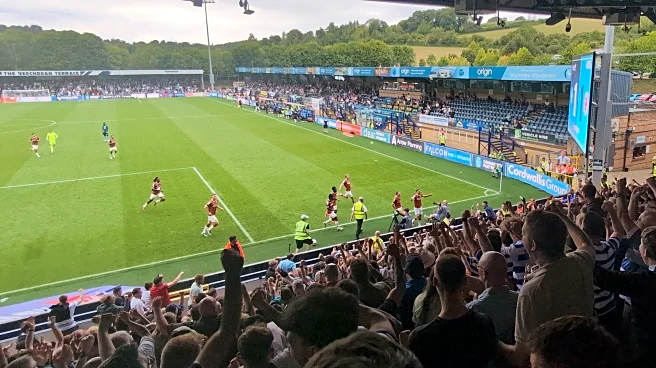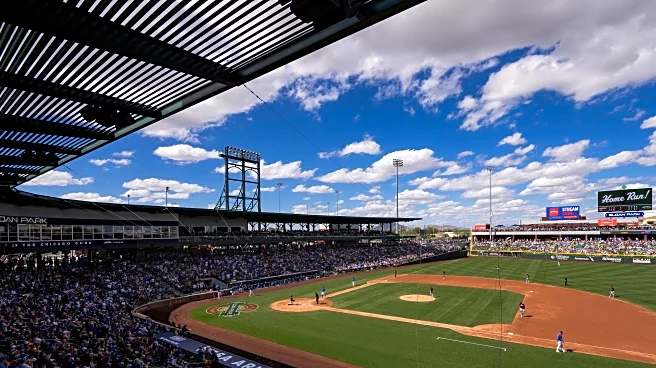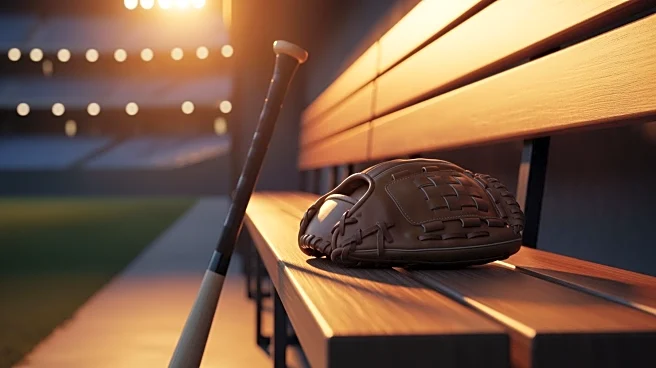It’s been a conflicting week for Reading on the road. Two away games, two draws, and two cases of the Royals not getting the result they deserved.
While Wednesday’s trip to Bolton Wanderers was a poor performance that turned out OK in the end – a robbery of a point after Andre Garcia’s late equaliser – this was more or less the opposite. Reading were much, much better all round and would have been good value for all three points if only that’d been the outcome.
It wasn’t though. Despite everything
Reading did right today – improvements in attacking quality, fluency in possession and responding to going behind – second-half lapses in game management and defending were the Achilles heel that Wycombe Wanderers struck an arrow through.
The Royals should have seen this game out, stopped the hosts growing into it at 1-2 and been tighter at the back, but this side – one still very much in a learning stage – couldn’t get the job done on this occasion. And let’s be honest, teams in transition phases are liable to drop points in this fashion.
We’ve seen it before, of course. At the end of this game, even before Wycombe’s equaliser, I had an eerie “oh ****, this is going to go like the Shrewsbury loss, isn’t it?” feeling in my mind. It’s scant consolation that this game didn’t turn out that badly, but it’s a relief all the same.
Regardless of the result and the manner in which it came, I’m more encouraged by this side than I was before kickoff. Way more encouraged. We’re on the right track, we’ll get there, keep the faith.
Noel Hunt freshened his side up somewhat after Wednesday’s long trek up north. He was right to point out both before and after today’s game that the squad getting back to Berkshire at around 5am on Thursday morning threw up a challenge on the fatigue front, so some rotation made sense.
Reading (4-3-3): Pereira; Ahmed, Burns, Williams, Jacob; Elliott, Wing, Savage; Kyerewaa, O’Mahony, Camara
Subs: Stevens, Abrefa, Dorsett, Fraser, Doyle, Lane, Garcia
The two main positives in that side were the return of Ben Elliott to the heart of midfield and Paddy Lane making the bench. The former can be so influential in possession that it was very odd indeed to not see him start either of the last two matches, so kudos to Hunt on bringing him back in. Lane on the other hand is the most accomplished forward in Reading’s squad (I don’t think that’s a huge statement, given his record at Portsmouth), so getting him back involved will be crucial in the coming weeks and months.

Reading looked bright in the first 10 minutes so, if you’d had to put money on who’d score the opening goal… you would have bet on it not being us (Sod’s Law is eternal), and you would have been right. Finley Burns’ slip allowed Wycombe in down our right, with Fred Onyedinma converting a low cross from Daniel Udoh for 1-0.
The hosts had one more good chance in the first half, with Onyedinma getting in too easily and forcing a save out of Joel Pereira. The story of the first 45 minutes was, however, largely about the mixture of promise and frustration for Reading as they pushed for an equaliser.
First, a word on the second part of that (I like to get the negative stuff out of the way). For a lot of the first half, frustration in the away end was palpable as Reading often lacked intensity in and out of possession, as well as quality.
While some of that angst was absolutely understandable based on how this specific game was going, it also seemed to equally have been driven by pre-match frustrations boiling over into this match day. “I can’t believe yet another game is going against us,” and so on.
But there was promise though: plenty of it, and enough to say Reading deserved to be ahead before the break.
Elliott in particular was sharp in the midfield, demonstrating the magical manipulation of possession that makes him stand out so well. Him being equally adept at driving with the ball and playing incisive passes forces the opposition to react and makes everything so much easier for his teammates. Ashqar Ahmed also had joy down the right flank, overlapping from full-back in a similar way to how he’d done against Portsmouth, albeit to less extent.
A couple of quality moves resulted in chances for Charlie Savage from inside the area: one blocked, one saved. The Welshman also set up Mark O’Mahony for a header that was well saved, while Lewis Wing – not content to let the other central midfielders have all the fun – also curled a shot wide.
Wing really wasn’t keen to let that happen. So much so in fact that, late in the first half, he more or less single-handedly turned the game on its head. In the 42nd minute, Lewis De Bruyne swung in a perfect cross for Mamadi Camara; though the young winger was a fair way out, his header had the perfect mix of accuracy and power to beat the ‘keeper for 1-1.
Cue bedlam in the away end right behind that goal.
And then in the 44th, it was Wing’s turn to get on the score sheet. After Daniel Kyerewaa had seen his shot blocked, the ball fell to Wing outside the area, perfectly set up for him to drill it into the net. 1-2.
Cue some more bedlam in the away end right behind that goal.
That quick-fire, Wing-inspired brace meant that, when the referee’s whistle was blown, it was greeted by far more positivity among the travelling supporters than it otherwise would have been. While Reading’s captain obviously deserves credit for that spell, a word too for Camara and his towering header, as well as the Royals’ broader improvement before the interval.
Half-time: 1-2
The Royals started the second half well and were absolutely the stronger side for quite a while. It was so pleasing to see Reading enthused by the first-half turnaround, building on that progress and looking to extend the lead.
Consistent with the first half, there was involvement in the final third for all three of the central midfielders. Savage and Elliott had shots blocked, while Wing put one wide. The closest Reading came in this spell though was a chance for O’Mahony, who rattled the bar with a shot from the edge of the box.
Seeking to freshen his side up (and presumably to keep up the intensity), Hunt made a triple change in the 68th minute. Off went Ahmed, Kyerewaa and Camara, with Kelvin Abrefa, Lane and Garcia introduced – so straight swaps at right-back and on both flanks.
Frustratingly those substitutions – while logical on paper – didn’t have enough of a positive impact in the closing 22 minutes or so. Whether related to that triple change or not, it was actually the hosts who then grew into the contest, looking increasingly confident and finding more space, and Pereira once again was called into action to deny Wycombe at close range.
Reading essentially had two openings to kill the game off in the second half. First: during the first 20 minutes or so when the starting XI were still in a groove. Second: when fresh faces were introduced from the bench. With neither opportunity capitalised on, the task in the closing stages was to keep the contest tight and retain as much control as possible.
Instead, the flow of play was too open: the sign of a team that’s still collectively learning game management. Teaching a new group how to kill off a match and cynically strangle any openings for the opposition – even at the cost of playing as you would ideally want – doesn’t come easily.
Hunt tried to remedy things by freshening up in midfield. With around 10 minutes to go, off went Elliott and Savage, with Liam Fraser (on paper the kind of no-nonsense, experienced player for this scenario) and Kamari Doyle coming on.
Those alterations didn’t have the desired effect. In the 89th minute, Taylor Allen’s cross found an unmarked James Tilley at the back post, and he had the straightforward job of nodding home in front of an away end that… well, felt exactly as you’d expect it to feel in that situation.
While I wouldn’t have said that goal was coming per se, Wycombe had been getting enough joy in the preceding 20 minutes or so to mean an equaliser wasn’t a complete surprise. Still, Reading had been the better side overall to that point and rightly felt hard done by.
There was still time for either team to win it. On one occasion the hosts cut through Reading too easily and were only denied by Pereira tipping the shot past the post, while Fraser forced a good save out of Mikki van Sas with a header from a set piece.
Full-time: 2-2
Everyone will have their own perspective on this game, but mine is ‘glass half full’ rather than ‘glass half empty’. This was easily Reading’s best league performance of the season – even if that’s not saying too much given previous displays and Wycombe were pretty naff for a lot of the game – so it’s hard not to feel encouraged to some degree at least.
There was also a nice theme of positive reactions. Reading did well in general to build on the morale-booster of a late equaliser at Bolton, and responded to going behind early on by scoring twice before half-time, despite a lot of the first 45 being frustrating. That’s definitely progress from how easily the Royals’ heads dropped after conceding in previous league games.
It’s also true that Reading currently aren’t good enough defensively or in terms of game management, so we can’t feel too aggrieved by losing a lead late on.
Fundamentally this game told us two things about where this side is right now: it’s good enough to play well and deserve to win, but simultaneously it’s not refined enough to actually get that win.
Next up are two home games: AFC Wimbledon (again!) in the League Cup and Port Vale. On paper they’re great opportunities for Reading to build on back-to-back away points, but if the Royals blow those opportunities, they could end in regression too.
















